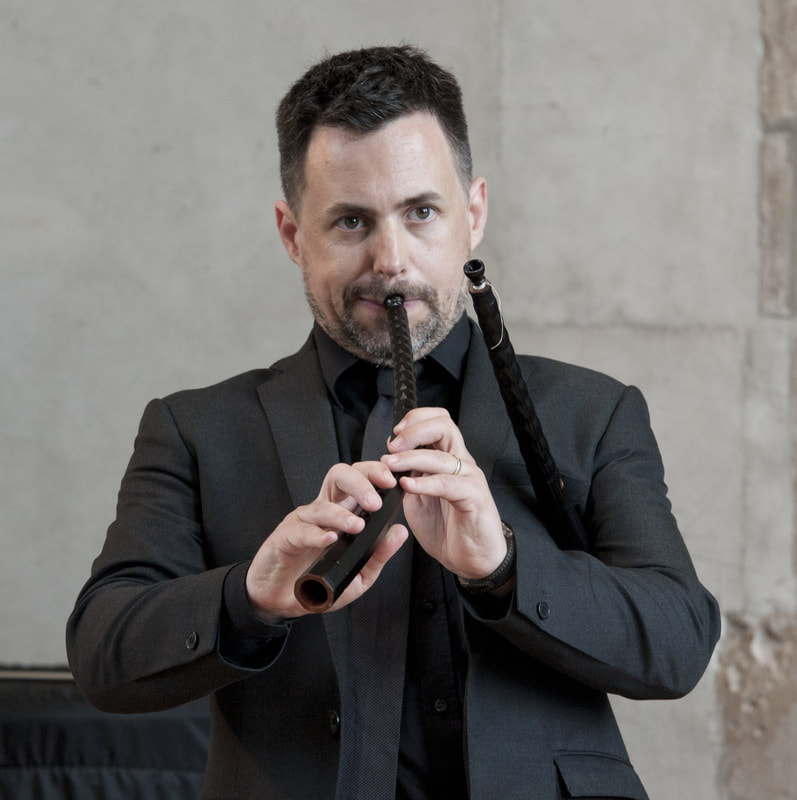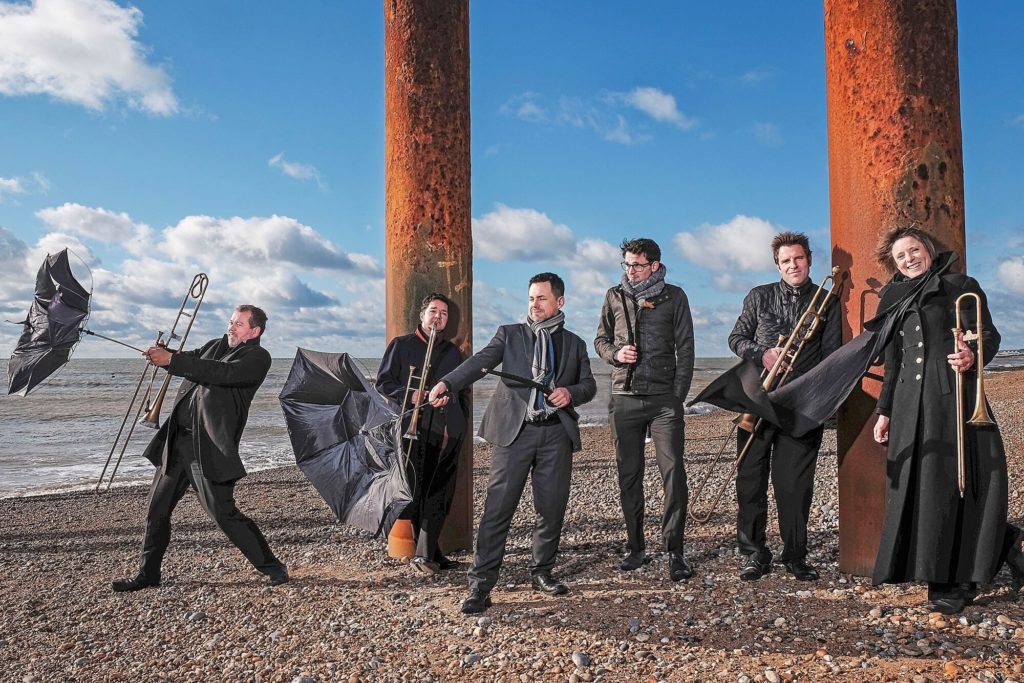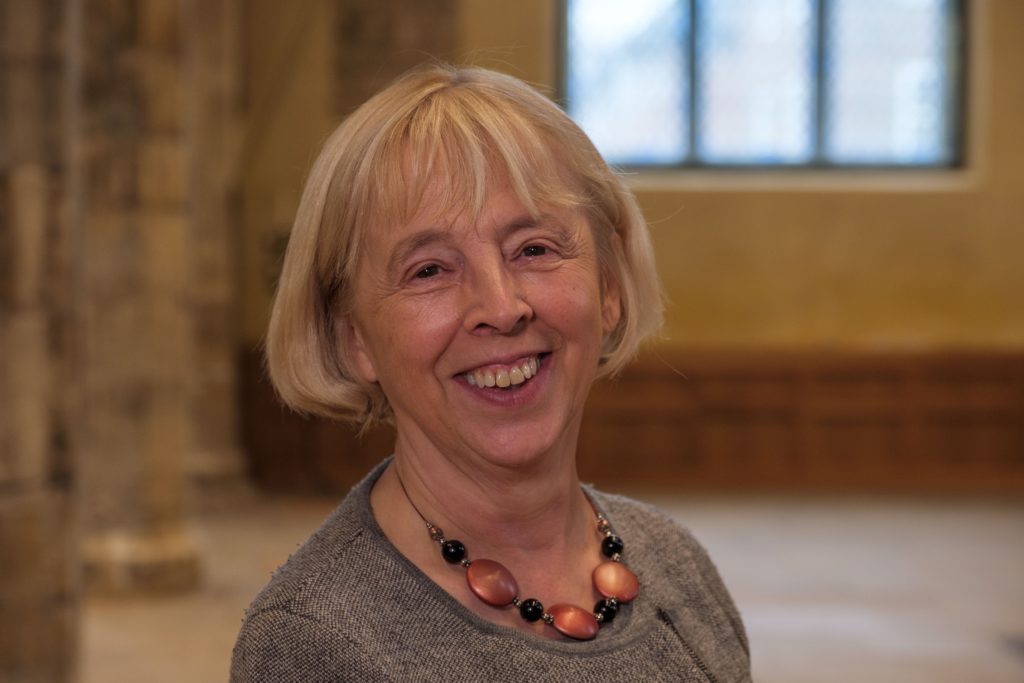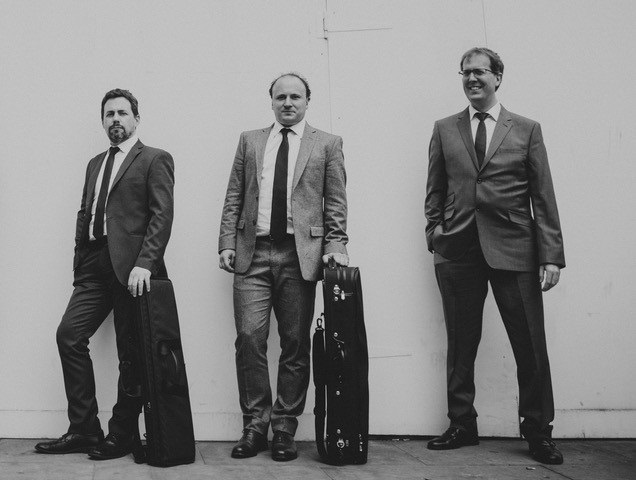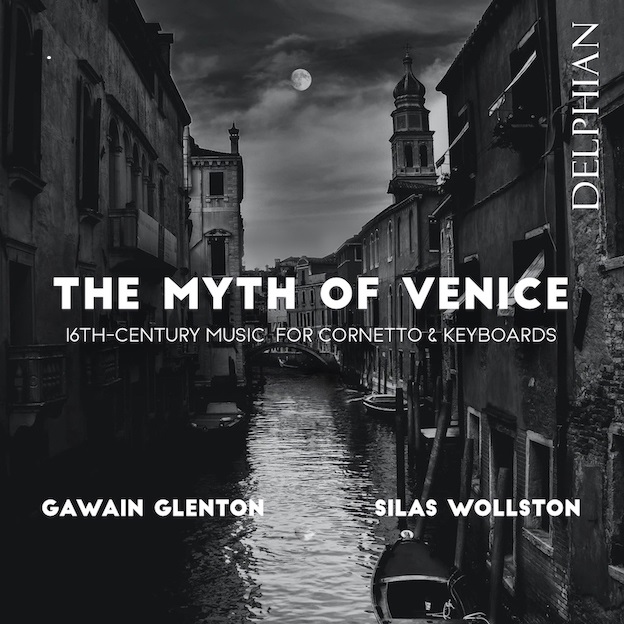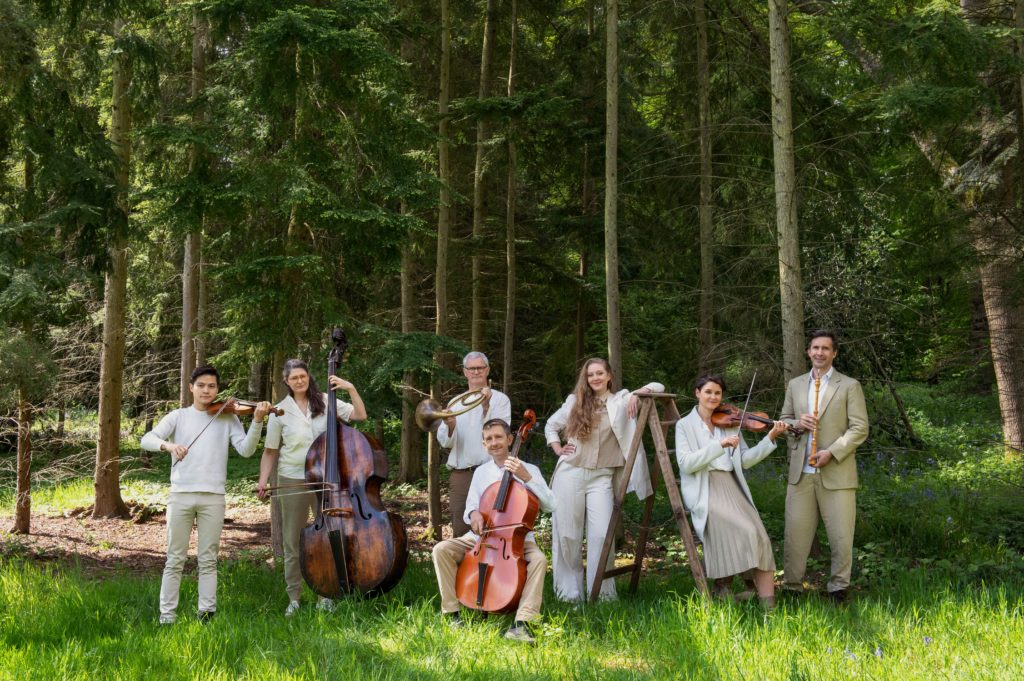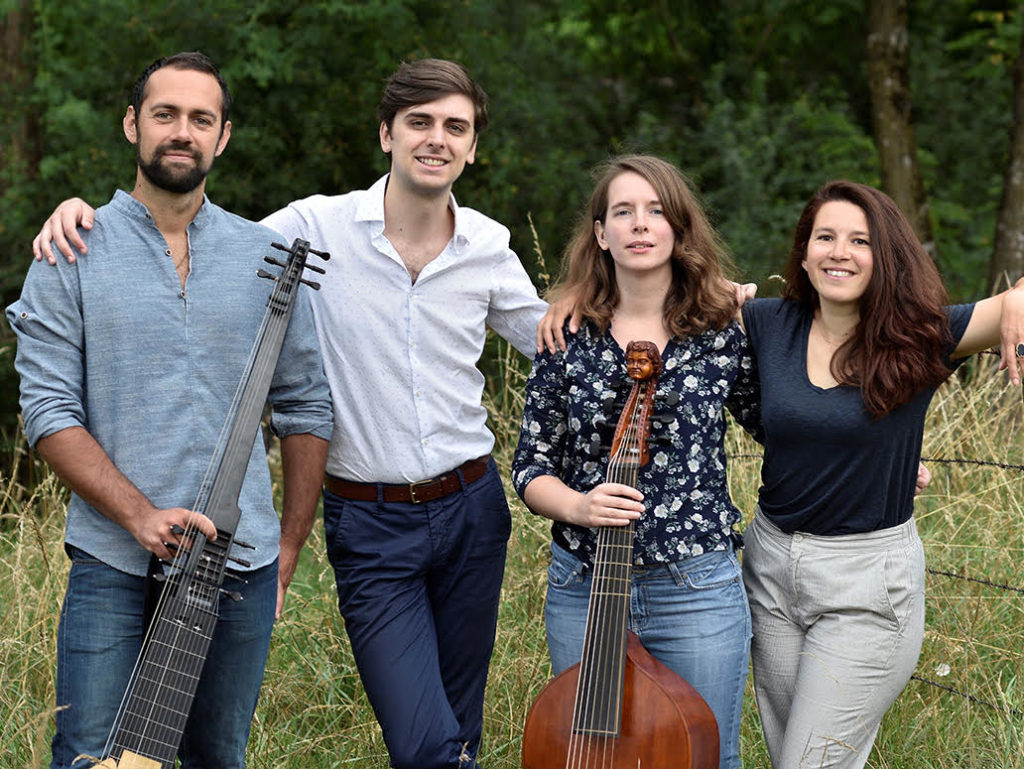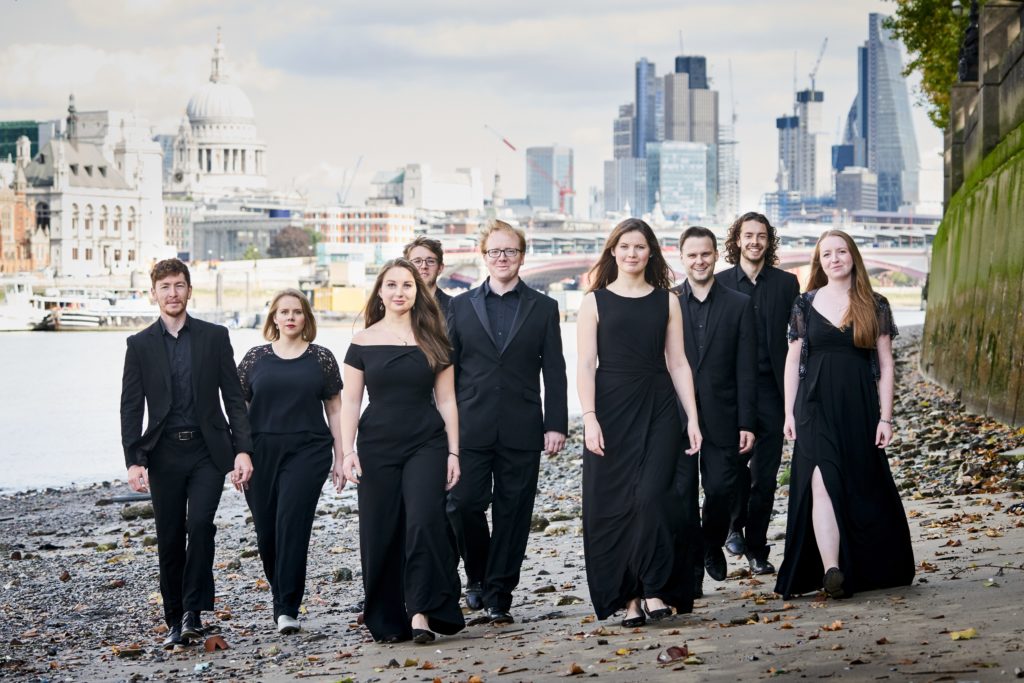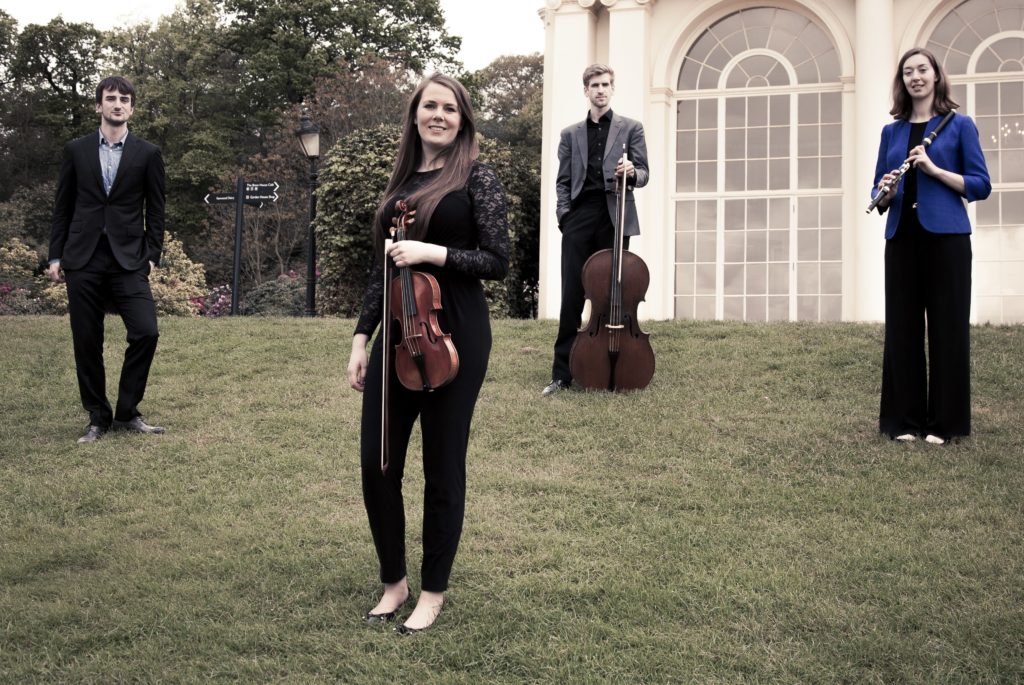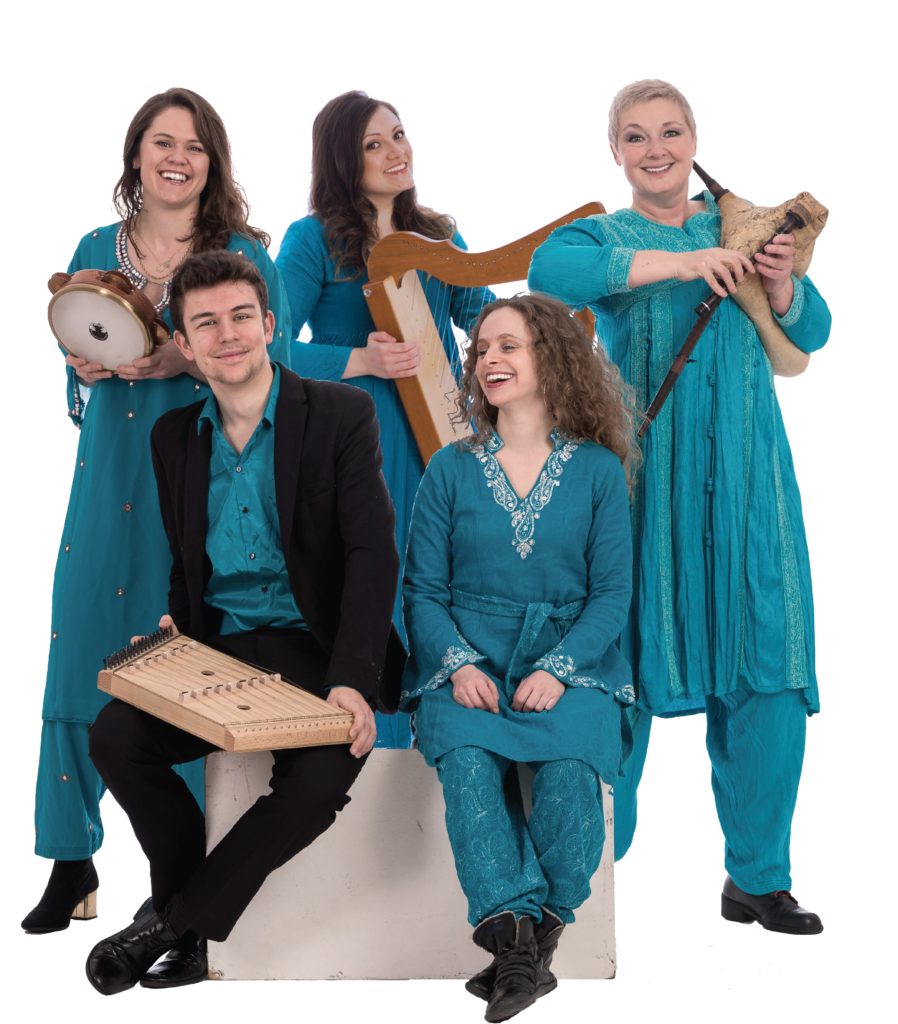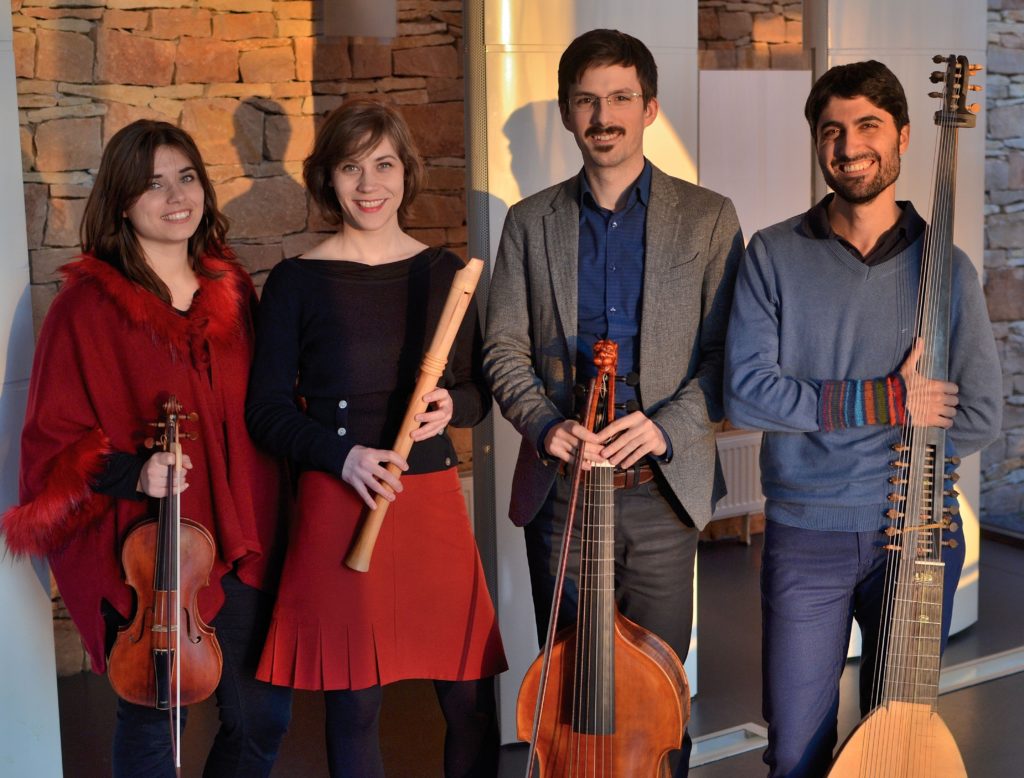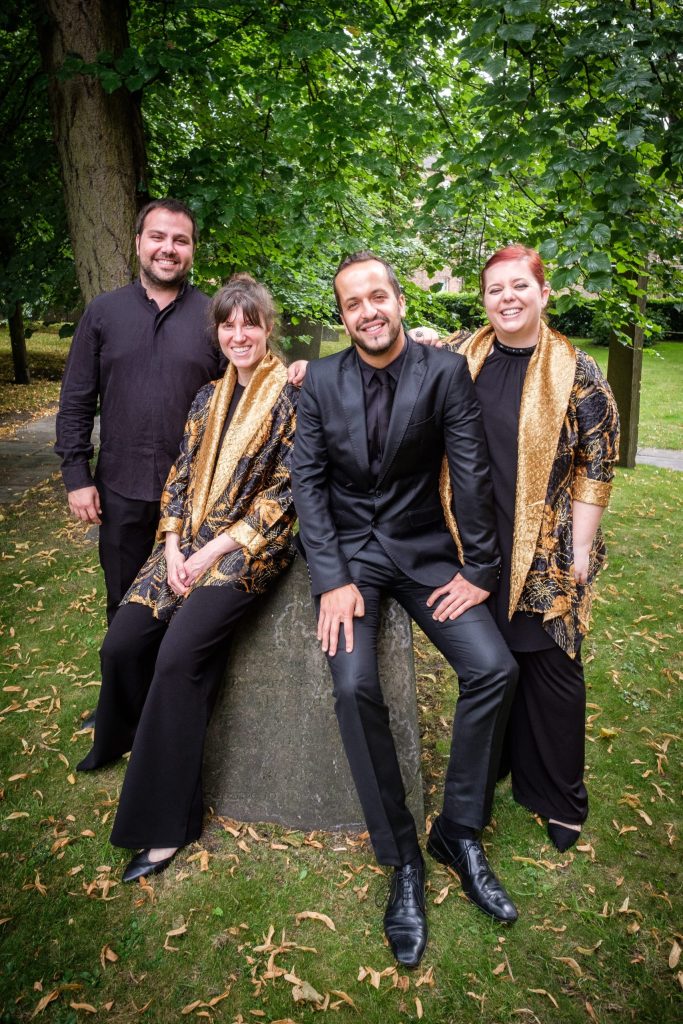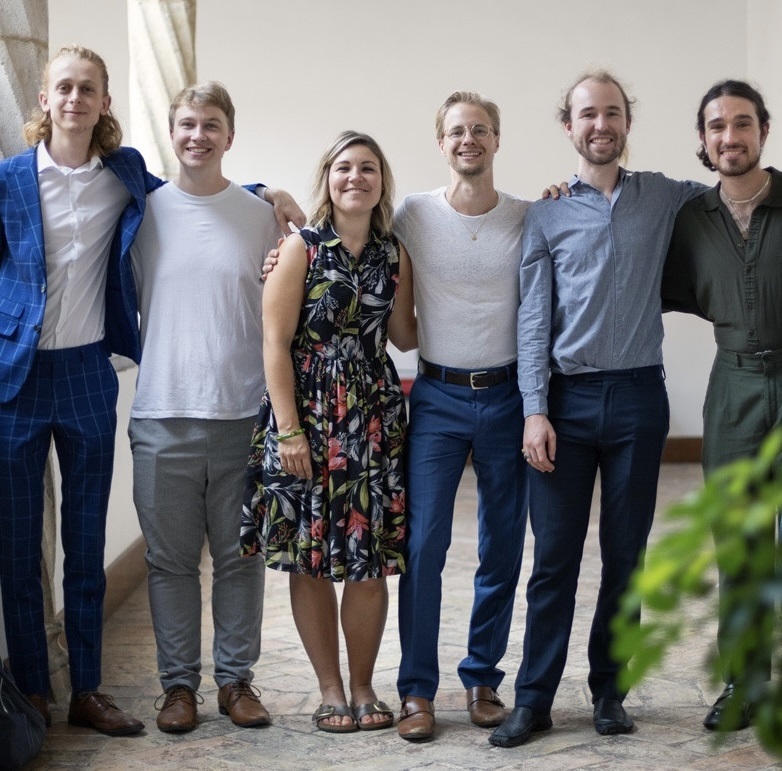
Apollo’s Cabinet: Playing opening concert at 2025 York Early Music Christmas Festival on December 5
THE 2025 York Early Music Christmas Festival will open on December 5 for a Yuletide feast of music spanning the centuries complemented by contemporary tunes.
Most concerts take place in the home of the National Centre for Early Music (NCEM), in the medieval setting of St Margaret’s Church, in Walmgate, where audiences can enjoy warming mulled wine and mince pies in “the perfect recipe for a heart-warming Christmas experience”.
NCEM Platform Artists Apollo’s Cabinet will kick off the festival with their Christmas edition of Apollo’s Jukebox Menu, where the audience will call the shots in this musical menu of Baroque favourites, bawdy ballads, delightful dances and streetwise scandals from 7pm to 8.15pm.
“Following their prize-winning successes over the past year, when they won the 2024 Friends Prize at our International Young Artists Competition ,and the launch of their debut album [Musical Wanderlust], we’re delighted that Apollo’s Cabinet are returning to the NCEM stage,” says festival director Delma Tomlin.
“They’re having a fantastic career already, appealing to a broad market, where they hit the sweet spot of entertaining as well as engaging audiences.
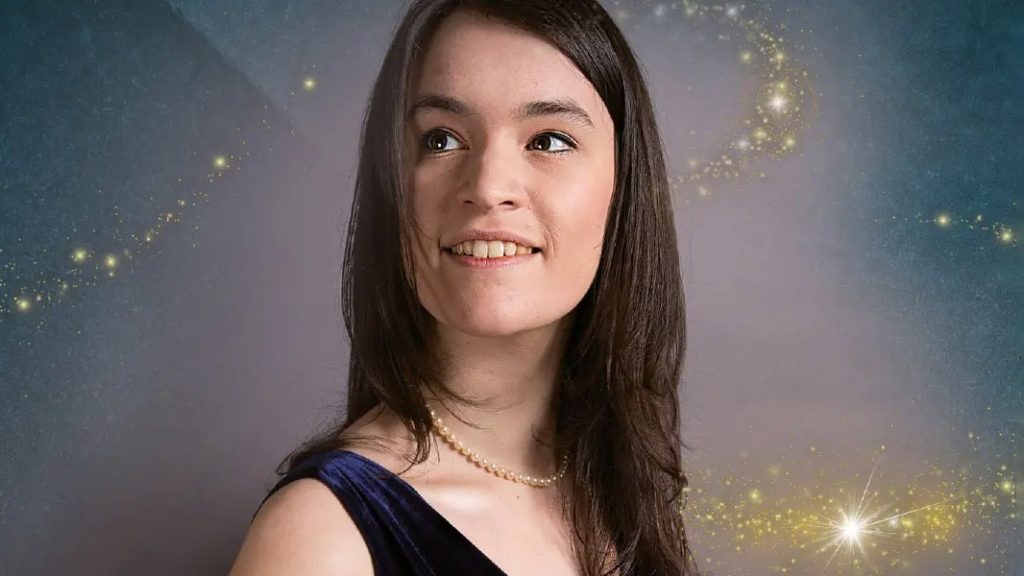
Mezzo-soprano Helen Charlston: Presenting A Lyrical Interlude on December 6
“At December 5’s concert, you should forget stuffy concerts with velvet seats and polite applause. Apollo’s Jukebox takes you back to the 18th-century music rooms where tunes weren’t just played – they were ordered. It’s all about good music, great stories and a proper pint.”
Rory McLeery, artistic director of festival act The Marian Consort, will host December 8’s 10.15am Choral Workshop at Bedern Hall , where he will take a journey through music by members of the Bach family, Schutz and Palestrina, to be followed at 4pm by an informal concert performance by the participants, who have been sent music online to practise in advance.
McCleery will direct The Marian Consort in their December 8 concert with the English Cornett & Sackbut Ensemble, directed by Gawain Glenton, in a festive 6.30pm programmed entitled Looking Bach To Palestrina, marking Palestrina’s 500th birthday.
York Early Music Festival artistic advisor and mezzo-soprano Helen Charlston will team up with her regular pianist, Sholto Kynoch, for A Lyrical Interlude at the NCEM on December 6, when her 12.30pm programme will embrace 18th century works by Fanny Hensel, Felix Mendelssohn and Carl Loewe.
This will lead to Robert Schumann’s song cycle Dichterliebe as Charlston explores themes of love, loss, longing and the power of memory and imagination to shape experiences of love, its joy and pain.
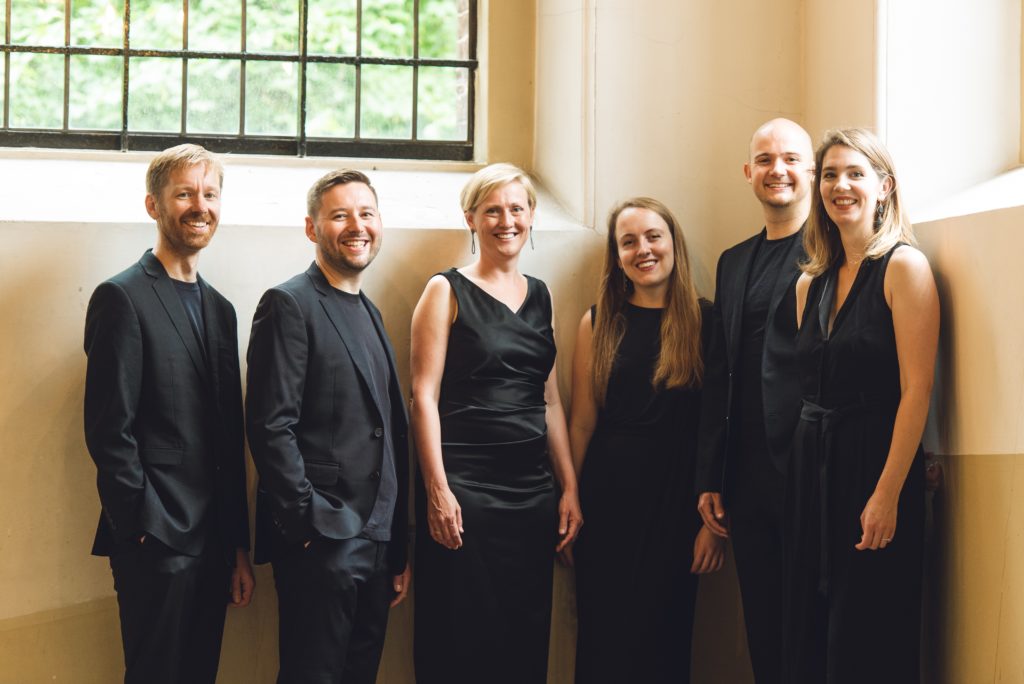
The Marion Consort: Teaming up with English Cornett & Sackbut Ensemble for December 6 concert. Picture: Ben Tomlin
Festival stalwarts Yorkshire Bach Choir & Yorkshire Baroque Soloists will unite once more under conductor Peter Seymour for Hayden’s 1798 magnus opus, The Creation, at the Sir Jack Lyons Concert Hall, University of York, on December 6 at 7.30pm.
“From its revolutionary ‘Representations of Chaos’ and the ensuing, electrifying arrival of light, the oratorio unfolds with boundless musical invention, painting vibrant sonic landscapes of land, sea, flora, celestial bodies, fauna and ultimately, humankind,” says Delma.
“Brimming with humanity and life-affirming joy, this work stands as a towering testament to the illuminating spirit of the Enlightenment.”
Reflecting on The Marian Consort’s December 8 programme, John Bryan, Emertitus Professor of Music at the University of Huddersfield, will give a 10.15am talk on December 7 on Contrast and Continuity: From the Renaissance to the Baroque.
The Dowland’s Foundry duo of tenor Daniel Thomson and lutenist Sam Brown will present Facets Of Time at a sold-out Bedern Hall on December 7, when their 2pm performance will combine music by Dowland, Daniel, Ferrabasco and Morley and words by William Shakespeare.
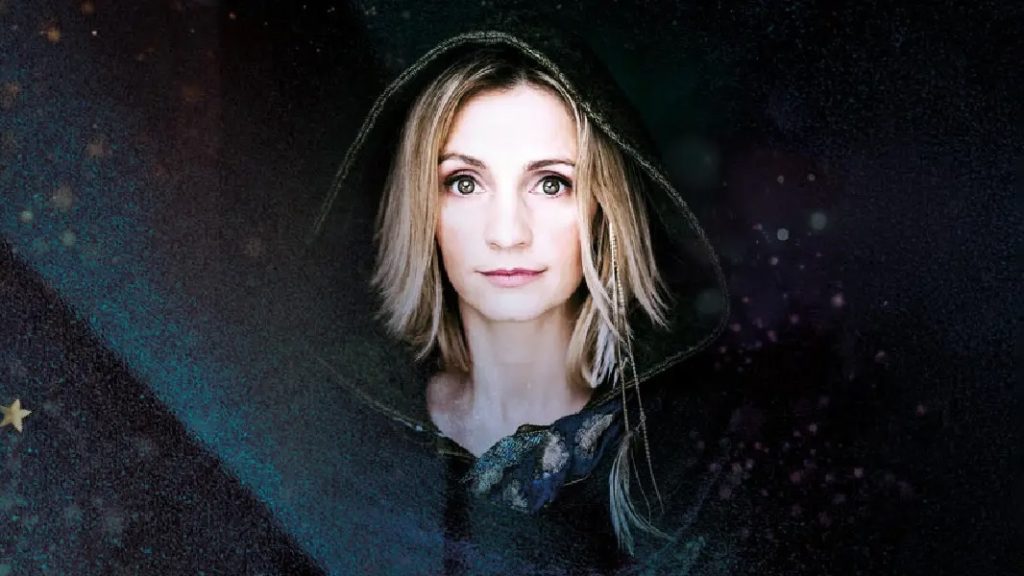
Irish folk singer Cara Dillon: On song in Upon A Winter’s Night on December 13
The Chiaroscuro Quartet and the BBC New Generation Artists Consone String Quartet will make a rare appearance together at the NCEM on December 7 for a 6.30pm programme featuring one of the 19th century’s most remarkable works, Mendelssohn’s Octet in E flat major Op 20, composed when he was 16, preceded by Haydn and Beethoven string quartets.
“Effectively this is the highlight of the festival. Having these two absolutely world-class quartets play together is extraordinary on what will be a magical night,” says Delma.
“Both quartets have played here before, so we have a great relationship with them, and I’ve wanted to programme the Mendelssohn Octet in the festival forever.”
Apollo5 will conjure the wonder of the winter’s changing landscape through contemporary choral writing for the season, interwoven with early music favourites by William Byrd and Guerrero in The Crimson Sun at the NCEM on December 9 at 6.30pm.
Lowe Ensemble, a Spanish family group, will perform Handel’s rare Spanish cantata No Se Emendara Jamas plus Iberian-Baroque festive music in Echoes Of The Baroque at the NCEM on December 12 at 12 noon.
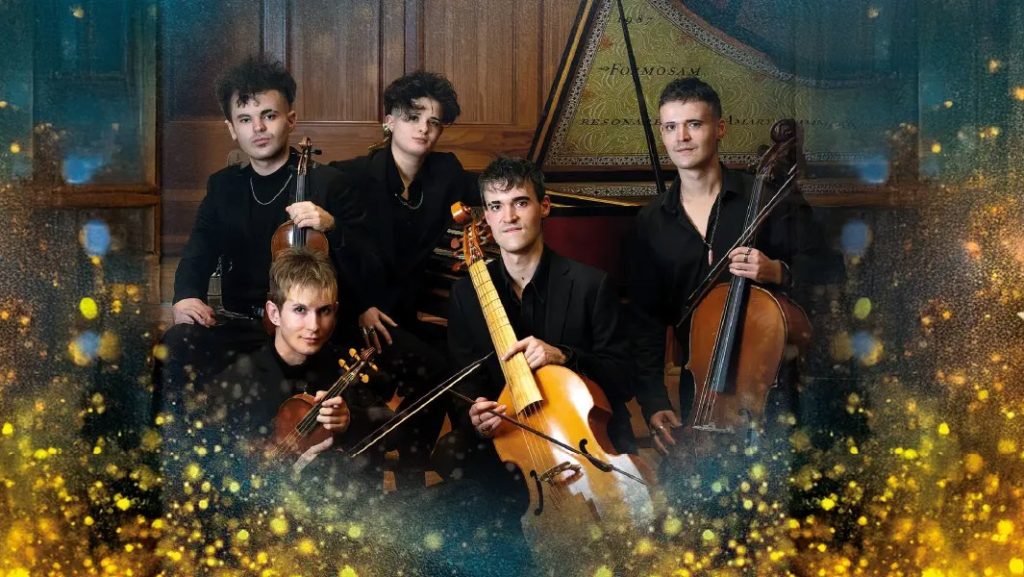
Lowe Ensemble: Performing Echoes of the Baroque at York Early Music Christmas Festival on December 12
Fieri Consort Singers and Camerata Øresund will perform From the Church to the Tavern: Christmas Cantatas by Christopher Graupner and English Tavern Songs at the NCEM on December 12 at 6pm. Expect festive jollity as heard in the taverns of 17th and 18th centuries at this exclusive concert for the 2025 Christmas festival.
Irish folk singer Cara Dillon’s beloved Christmas concert, Upon A Winter’s Night , will blend ancient carols with modern songs and and Celtic rhythms at a sold-out NCEM on December 13 at 7.30pm.
The festival will conclude with Joglaresa’s Here We Come A’Carolling at the NCEM on December 14 at 6.30pm. “We’re delighted to welcome back this effervescent ensemble with a programme of music guaranteed to chase out the Christmas chill,” says Delma.
Summing up the 2025 festival, she says: “Once again, we look forward to welcome friends old and new to our Christmas festival, which is always a very special time for all of us here at the NCEM.
“The York Early Music Christmas Festival was created in 1997 to introduce audiences to the extraordinary wealth of music associated with Advent, Christmas and Epiphany, from the Medieval to the Baroque, intertwined with the sagas, stories and tales of the north. We hope you will enjoy this year’s wonderful line up of artists performing an array music through the ages.” Box office: 01904 658338 or https://ncem.co.uk/yemcf/.
Dowland’s Foundry to play free Baroque Around The Books shows in Explore York community library tour on Dec 8 and 9
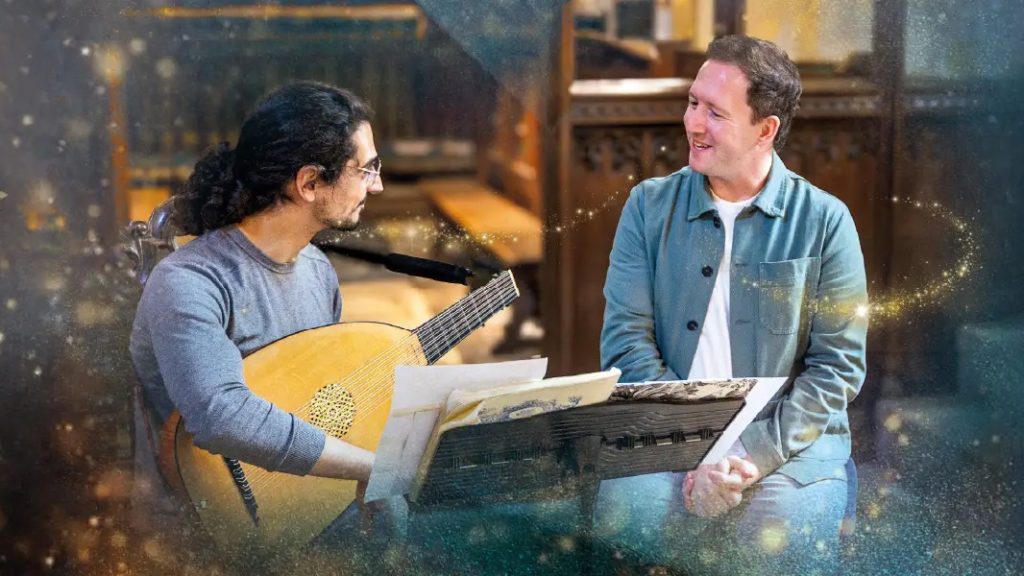
Dowland Foundry’s Sam Brown, left, and Daniel Thomson
IN the latest National Centre for Early Music cultural wellbeing initiative, the NCEM and Explore York library service are bringing award-winning tenor Daniel Thomson and Sam Brown, “the Eric Clapton of the lute”, to York for Baroque Around The Books.
On December 8 and 9, the Dowland’s Foundry duo will present a mini-tour of Facets Of Time, a dramatic performance based around Elizabethan England’s most iconic artists, William Shakespeare and John Dowland.
Daniel and Sam will be staying in York for this short residency and musical tour of community libraries after their December 7 appearance at the 2025 York Early Music Christmas Festival at a sold-out Bedern Hall, when their 2pm performance will combine music by Dowland, Daniel, Ferrabasco and Morley with words by Shakespeare.
Dowland’s Foundrywill play Tang Hall Explore on December 8 at 11am; Clifton Explore, December 8, 2pm; Haxby & Wigginton Library, December 9, 11am, and York Explore, December 9, 2pm.
Tickets are FREE for these informal concerts – and no booking is required – thanks to this NCEM initiative, working in association with Explore York, supported by the Mayfield Valley Arts Trust and funds raised in the 2025 Christmas Big Give Campaign.
Thomson and Brown have performed widely across the UK. Originally from Melbourne, Australia, Thomson is known for his expressive text-based performance with major groups across the UK, Europe and Australia.
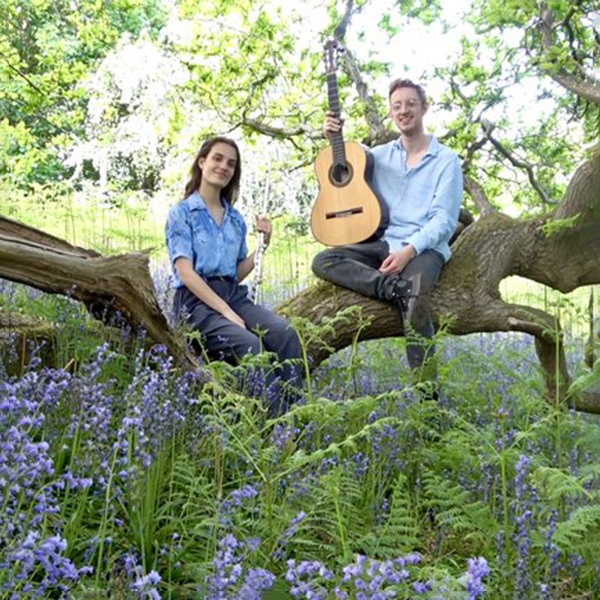
Flutes & Frets’ Beth Stones and Dan Murphy: Played Baroque Around The Books tour shows in York in 2024
Brown is a graduate of London’s Royal College of Music and one of the leading chordophonists of his generation, admired for his sensitive interpretation of Elizabethan music in performances across Europe, China and Kenya.
Dowland’s Foundry are undertaking the third Baroque Around the Books tour, after successful tours in 2024 by Flutes & Frets (flautist Beth Stones and frets player Dan Murphy) and Intesa (European viol and vocal musicians Lucine Musaelian and Nathan Giorgetti).
Each one brings free and accessible Early Music performances to the communities of York in a unique opportunity to celebrate and discover Early Music with two talented young performers.
“The NCEM is dedicated to promoting the extraordinary array of talent from Europe’s vibrant Early Music scene and Baroque Around The Books reinforces our ongoing commitment to support, encourage and nurture the skills of emerging artists in the UK and beyond,” says NCEM director Delma Tomlin.
“It’s wonderful to be working with our partner Explore York Libraries & Archives once again. Sam and Daniel have developed a sincere love and understanding of lute song that we look forward to sharing with new audiences from York communities.”
Explore York chief executive Jenny Layfield enthuses: “This partnership with NCEM is truly inspiring. There’s something wonderful about bringing such talented musicians into library spaces, offering our communities the chance to stumble upon a high-quality experience.
“I had the pleasure of attending one of the Baroque Around The Books sessions organised by the NCEM last year, and I absolutely loved it. If you have the opportunity to attend a performance at one of our Explore Centres this December, I wholeheartedly recommend it.”
Reactions to 2024’s Baroque Around The Books tours by Flutes & Frets and Intesa
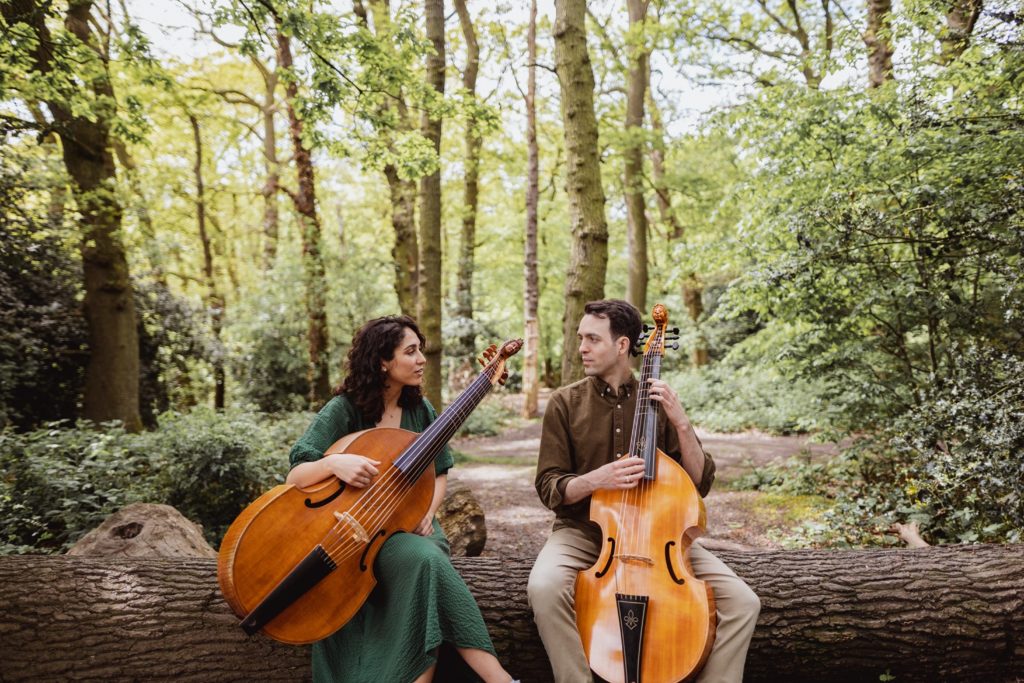
Intesa musicians Lucine Musaelian and Nathan Giorgetti
“Uplifting, beautiful. Exquisite singing and playing. I felt privileged to experience this in a local library.”
“It was an unexpectedly moving experience.”
“I cannot tell you how glorious the last 20 was. I called in to collect a book and thought I’d gone to heaven.”
“It was truly beautiful and amazing that we could see this at our local library!”
“This was a delightful surprise as I just popped in to get a book. Even though I had other things to do, I stayed for the whole performance, which I loved. A quality experience.”
‘‘It was wonderful, it felt like it was a gift to York. Thank you so much. Thes are difficult times for many of us. This really felt so positive and generous.”
For more Baroque Around The Books details, go to: http://ncem.co.uk/baroque-around-the-books/.

